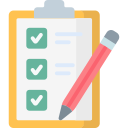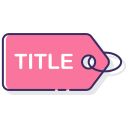 When writing an action research project, students are required to simulate the administrator's role to influence adult behavior. An action research project helps students improve their outcomes, even in the overall grading, as they use this project to change student outcomes. Action research is done in various fields, including nursing, medicine, social work, education, and psychology. Although students across various disciplines write it, action research is mainly done in the field of education. Whether you need action research topic help for B.Ed. or nursing or any other discipline, a great topic provides the opportunity to explore the effectiveness of curriculum development and teaching practice. In a nutshell, an action research project is more of a cyclical process, which should reflect upon the action and research results that affect changes in a student's practice, subject to further questions & action. Through action research, it is easy to identify the problem, implement the plan, devise an action plan, and observe the process. A well-written action research action project comprises the above-explained essential guidelines to make it professional and credible. There are various points of consideration we advise students on when they seek our help with topics, which are;
When writing an action research project, students are required to simulate the administrator's role to influence adult behavior. An action research project helps students improve their outcomes, even in the overall grading, as they use this project to change student outcomes. Action research is done in various fields, including nursing, medicine, social work, education, and psychology. Although students across various disciplines write it, action research is mainly done in the field of education. Whether you need action research topic help for B.Ed. or nursing or any other discipline, a great topic provides the opportunity to explore the effectiveness of curriculum development and teaching practice. In a nutshell, an action research project is more of a cyclical process, which should reflect upon the action and research results that affect changes in a student's practice, subject to further questions & action. Through action research, it is easy to identify the problem, implement the plan, devise an action plan, and observe the process. A well-written action research action project comprises the above-explained essential guidelines to make it professional and credible. There are various points of consideration we advise students on when they seek our help with topics, which are;
- Ensuring that the topic meets the project's requirements
- Choose a topic that's interesting and amusing to make the process much more fun and engaging
- Consider the capacity and ease of defending the research topic
Action research topics for students involve conducting research with the primary goal of bringing about practical changes or improvements in a specific educational context. This approach allows students to actively participate in problem-solving and understand the impact of their efforts on real-world issues within their educational environment. Some potential areas of exploration include studying study habits and time management, enhancing peer collaboration and group work, addressing bullying and cyberbullying, promoting environmental awareness and sustainability, evaluating the impact of technology on learning, assessing the effectiveness of teaching methods, exploring the influence of extracurricular activities, reducing academic stress and exam anxiety, improving parent-teacher communication, and cultivating a culture of reading. Through action research, students gain valuable insights and contribute to the enhancement of their school community.
Most Recent List of Topics for Action Research - Sample Ideas
 Writing an excellent action research project in education is one of the most incredible opportunities that students should embrace to make innovations that can remain in the books of history. By utilizing a cyclical process of planning, acting, observing, and reflecting, action research allows teachers to make data-informed decisions to enhance their teaching practices and improve student outcomes. Below is a list of topics for action research in the classroom that can be used to identify, investigate, and address challenges within classrooms.
Writing an excellent action research project in education is one of the most incredible opportunities that students should embrace to make innovations that can remain in the books of history. By utilizing a cyclical process of planning, acting, observing, and reflecting, action research allows teachers to make data-informed decisions to enhance their teaching practices and improve student outcomes. Below is a list of topics for action research in the classroom that can be used to identify, investigate, and address challenges within classrooms.
- The development of critical thinking is the primary goal of the educational process students need to be much more decisive in every step of their studies to be successful in their future careers:
Various educational institutions globally are currently identifying the relevance and the need to develop critical thinking in students. Since we are in an information age, every person has tons of data in their fingerprints, courtesy of the internet & computer devices. Critical thinking is one of the skills that enable people to discern between false & correct, irrelevant & relevant, and unbiased & biased information. Creative thinking is a reliable skill that's necessary to excel in this competitive world. In a nutshell, critical thinking that people are born with, however, can also be developed with proper training from teachers.
- The education evolution approaches throughout history and how their benefits affect the learning industry:
Education is a relevant process of facilitating learning. Education is used as a relevant tool for the acquisition of expertise. Civilization in Mesopotamia & Egypt has led to the accumulation of a large body of skills over time. The bundle of knowledge becomes too heavy & complex to be transmitted to future generations orally. The concept of formal education in classrooms came into existence due to the investment of knowledge. Regarding various cultures worldwide, the idea of kids not learning in schools appears to be a foolish move. It is collectively accepted that institutions are suitable to impart knowledge to help students fit into society.
- The negative & positive impact of technology in education & modern technologies as a tool for development:
Education is no more based on the rote learning technique, and the education space has gradually witnessed the change. The future of good education regards personalizing learning while allowing students to learn at their pace & learning design. Personalized learning can equally be done without necessarily using technology. However, the use of technology makes learning procedures fun and fast. Even though technology has been professed as a hindrance to a student's studying, it's good to understand that there is no way to escape it. It would help people accept that technology will always be a part of education and strike a balance between the two. The advantages & disadvantages of technology in education are; Technology is addictive, Technology is a tool, & Technology makes students more dependent
- How do students from diverse cultures and countries fit into the world of virtual reality education and research rooms?
Various educational centers have begun introducing powerful technology-based tools that can help meet the demands of the diverse student population. Over the last few years, virtual reality has moved to professional development from being merely a gaming purview. Virtue reality plays a vital role in the teaching expedition by offering an exciting & engaging approach to acquiring relevant information. VR provides new opportunities by putting together the most amusing & recent applications suitable for education. VR relates to education in areas such as engineering, general, and health-related issues. VR has future directives, which potentially improve the learning experience.
- Best way to teach sex education in schools in regard to the student’s age and academic level:
The art of informing the younger generation about everything they need to understand regarding sex is referred to as sex education. This is an area that's controversial in education and has been hovering over educational institutions for ages. Sex education is not only about sex, as it includes other sensitive issues such as sexual reproduction, sexual health, sexuality & other areas that parents are uncomfortable discussing with their children. Often, sex education in learning institutions is seen as a recreational course instead of a solemn issue. To ensure that every student is well informed, schools should embrace sex education.
- The education and gender set-ups that favor students in both same-sex and mixed-sex schools:
It is believed that mixed-gender schools are much better & more beneficial for students, as they are young & schools are the prominent place to attain the knowledge to develop their social skills. A same-sex school helps students quickly adapt to various kinds of environments that could occur in their present and future lives. Co-education provides room for comradeship feeling; therefore, advocacy for both genders in the same school without discrimination is necessary. In a mixed-gender school, students can easily express diversity within the institution, which demonstrates equality.
- The relevance of introducing the same kind of education to students in different countries and origins:
There is a robust model in people's minds that education means securing a great job with a good salary. Therefore, this translates to high living standards, showing the purposes, meaning, and benefits of education. The education system is different in various countries, and the research done varies too. Private tuition is an area of the researcher's analysis, where the precedence, meaning, and reason for taking private tuition. There is a relevant link between academic performance and private tuition. Education revolves around the acquisition of skills and skills attainment.
- The Knowledge & social skills to be introduced to students at the preschool education level and when to advance to much more complex education:
In various countries, early childhood programs seek to implement academic programs to prepare children more efficiently for elementary school. In accordance with critics, direct instructions and academic content are emphasized at the expense of enhancing relevant learning-related expertise. Recent confirmation provides suggestions for a narrow focus on academics in preschool education. This may be a mistake, as children may not be fully prepared when the demand for creativity, comprehension, and independent work becomes necessary. A preschool's readiness includes relevant learning-related skills, which include a child's aptitude to express wants, thoughts, and needs verbally.
Action research in the classroom setting empowers educators to be proactive problem-solvers, continually improving their instructional practices for the benefit of their students. The list of topics for action research above represents a diverse range of areas where action research can lead to meaningful insights and improvements in teaching and learning. By engaging in action research, teachers can foster a culture of continuous improvement and create an environment that nurtures the growth and success of all students.














 In the ever-evolving landscape of education, students' academic success and overall development remain at the forefront of educators' concerns. As we step into and past the year 2023, it becomes increasingly crucial to explore innovative topics that can shed light on effective teaching strategies, learning methodologies, and student engagement. Action research is an empowering approach that enables students to take an active role in their education, fostering a deeper understanding of subjects and promoting lifelong learning. Even in 2023 and after, students continue to face diverse challenges and opportunities in their educational journeys. From the integration of technology in the classroom to the growing importance of social-emotional learning, educators are constantly seeking ways to enhance the learning experience and cater to the unique needs of each student. We have sampled below some most recent title examples for action research for students and if you may need step-by-step guidance, be sure to seek our professional
In the ever-evolving landscape of education, students' academic success and overall development remain at the forefront of educators' concerns. As we step into and past the year 2023, it becomes increasingly crucial to explore innovative topics that can shed light on effective teaching strategies, learning methodologies, and student engagement. Action research is an empowering approach that enables students to take an active role in their education, fostering a deeper understanding of subjects and promoting lifelong learning. Even in 2023 and after, students continue to face diverse challenges and opportunities in their educational journeys. From the integration of technology in the classroom to the growing importance of social-emotional learning, educators are constantly seeking ways to enhance the learning experience and cater to the unique needs of each student. We have sampled below some most recent title examples for action research for students and if you may need step-by-step guidance, be sure to seek our professional 